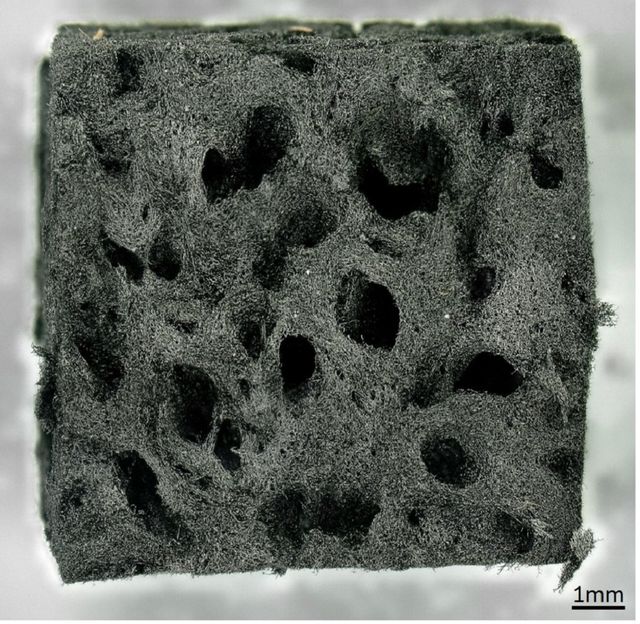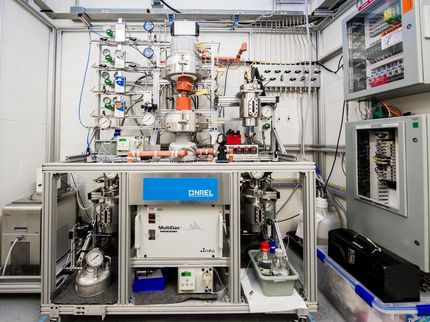Unique material from marine bath sponge skeleton
Novel carbon sponge could serve as a centimetre-thin catalyst for industry in the future
Advertisement
Scientists of the TU Bergakademie Freiberg, together with an international research team, have deciphered the structure of a marine sponge skeleton and developed a novel three-dimensional composite material for the modern materials industry.

TU Bergakademie Freiberg
The so-called "graphite" has unique structural, mechanical and thermal properties and could serve as a centimetre-thin catalyst for industry in the future. The model for the new material is the carbonized 3D skeleton of a marine bath sponge. This consists of collagen-containing spongin and is particularly stable and heat-resistant due to its multi-layer nanofibers.
In various experiments, scientists led by Prof. Hermann Ehrlich of the Technical University Bergakademie Freiberg have carbonized the spongin scaffolds at temperatures of up to 1200 degrees Celsius. The resulting carbon sponge resembles the shape and unique microarchitecture of the original spongin scaffold and is so stable that it can be cut into any shape with a metal saw. Coated with a metal layer, it also becomes a unique hybrid material with excellent catalytic performance.
"We have found a new way to use familiar bath sponges. Instead of using them only for cosmetics, we can now also use them for modern technologies," says Prof. Ehrlich happily. Together with his team, he is working on initial proposals for the production of the biomimetically inspired catalyst for industry. For the past two years, the 29-member team has been researching the structure of the naschwachsenden marine sponges, developed by nature and in existence for 600 million years, in order to develop biomimetic models as alternatives to plastic frameworks for modern materials science. They are supported by the German Research Foundation (DFG) and the State Ministry of Science and the Arts.
Original publication
Other news from the department science

Get the chemical industry in your inbox
By submitting this form you agree that LUMITOS AG will send you the newsletter(s) selected above by email. Your data will not be passed on to third parties. Your data will be stored and processed in accordance with our data protection regulations. LUMITOS may contact you by email for the purpose of advertising or market and opinion surveys. You can revoke your consent at any time without giving reasons to LUMITOS AG, Ernst-Augustin-Str. 2, 12489 Berlin, Germany or by e-mail at revoke@lumitos.com with effect for the future. In addition, each email contains a link to unsubscribe from the corresponding newsletter.





























































